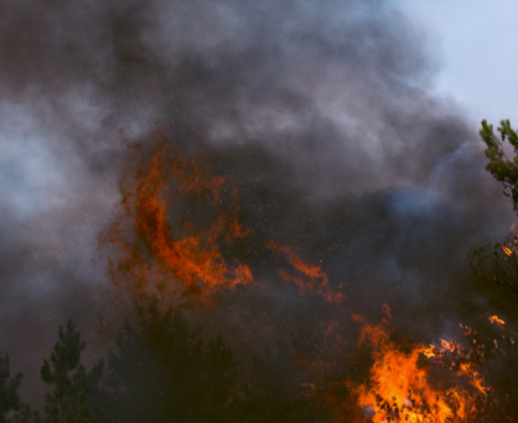SUMMARY
In light of environmental terrorism, this report looks into the forest arsons commit- ted by the outlawed terror organisation PKK (Kurdistan Workers’ Party) and the rhetoric used to legitimize them. Throughout last summer, forest fires both in Turkey and across the world re- ceived wide coverage in the public media. As opposed to the fires around the world, many forest fires in Turkey occurred as the result of acts of sabotage by the PKK that has resorted to methods of environmental terrorism. Apparently, the PKK is focus- ing on environmental terrorism – as it did in the 1990s and the 2000s – as a result of its weakening technological, economic, and political influence resulting from Tur- key’s effective counterterrorism operations. Environmental terrorism is low in cost, requires less planning, and fewer militants. This report concentrates on academic works that underline the link between terrorism and forest fires. In light of environ- mental terrorism, it examines the recent acts of forest sabotage by the PKK and the rhetoric adopted by the group to legitimize these acts. The report also discusses the attitudes of various Western media outlets towards the forest fires.
In light of environmental terrorism, this report looks into the forest arsons committed by the outlawed terror organisation PKK (Kurdistan Workers’ Party) and the rhetoric used to legitimize them.
INTRODUCTION
Forest fires in summer occur in Turkey concur- rently with many places around the world. The most significant difference is that some of the forest fires in Turkey are the direct result of PKK sabotage, which forms a part of a planned strat- egy since the 1990s. Turkey’s successful counter- terrorism strategies and operations both inside and outside the country, particularly since the July 15, 2016 failed coup attempt, have inflicted a heavy blow on the PKK’s operational capabili- ties. (Table 1) That paved the way for the organi- zation to concentrate again on the methods of environmental terrorism which are occasionally applied by this group in the past. In this regard, the PKK tries to grab attention by setting fire to forests in cities which attract considerable num- ber of tourists in the period of July and August. In this way, the organization aims to harm Tur- key’s regional and national economy by paralyz- ing the tourism sector, whose share in the econo- my has increased considerably in recent years.
FIGURE 1. THE BALANCE SHEET OF THE FIGHT AGAINST THE PKK IN THE RECENT PAST
A total of 2,700 terrorists have surrendered in the last five years; 1,500 of them are below 18 years of age.
Although forest fires in different places around the world (California, Siberia, Greece, the Amazon, etc.) made it to the agenda of inter- national media outlets, the fact that members of the PKK are the arsonists behind the fires in Tur- key was not mentioned at all. In fact, even when they covered the forest fires in the country, the Turkish desks of certain Western media institu- tions did not include information on the PKK as the perpetrators. Rather than focusing on the reasons behind the fires, they focused on the po- litical debates over the firefighting efforts. This analysis examines environmental ter- rorism as a type of terrorism and the relevant concepts generated in the literature in this re- gard. It underlines that the forest fires in Turkey were adopted by the PKK as a method of envi- ronmental terror and it emphasizes the PKK’s role in the recently increasing numbers of forest fires in Turkey. In addition, the report exposes how this terrorist organization legitimizes the ar- sons and discusses the attitude of the interna- tional media towards them. As part of the research, the relevant litera- ture was scanned in order to examine the con- nection between forest fires and terrorism. The report clarifies concepts used in the related work and analyzes the setting fire to forests by the PKK in the context of environmental terrorism. Newspaper articles, news archives, and other open sources were used to obtain data. Further- more, qualitative analysis of quantitative data was conducted and, at this stage, graphics were generated to provide visual richness for the read- er. To understand the attitude of the internation- al media regarding the PKK arsons, the research- ers have scanned related news and used the methods of content and discourse analyses; for news scanning, the researchers preferred to uti- lize the Turkish desks of international media out- lets such as the BBC, Deutsche Welle, Euronews, Sputnik, and the Independent. In this direction, the scope of the study was narrowed down to the June-August period due to the increasing num- ber of hot weather-related forest fires and the in- tensification of the PKK acts of sabotage in this particular period. Various keywords such as “for- est”, “fire”, “PKK”, “Turkey”, and “sabotage” were used while scanning the news.










